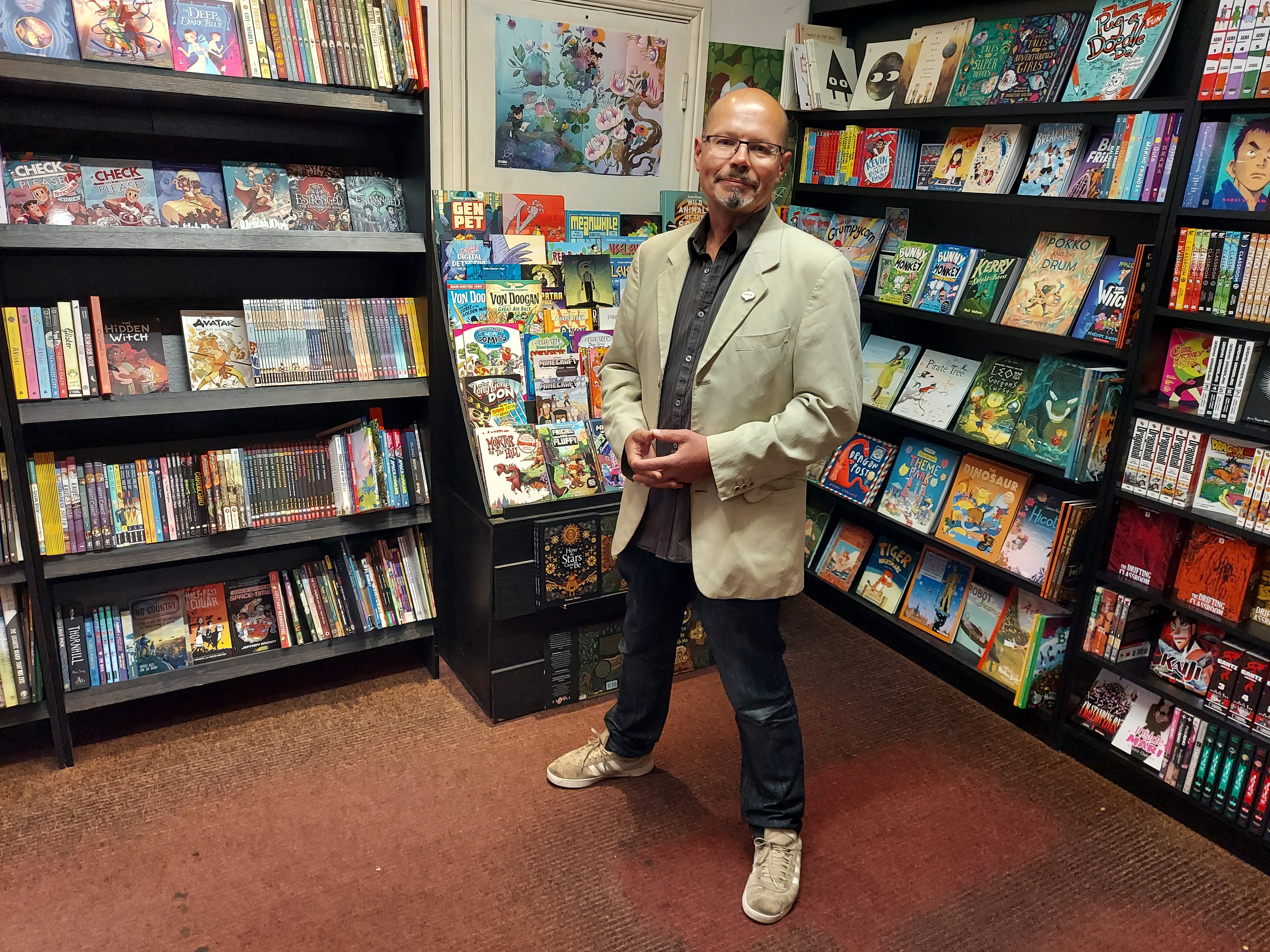 This month we welcome Stephen L Holland as our Guest Editor. As Comics Laureate, Stephen is our go-to expert in this ever-growing medium.
This month we welcome Stephen L Holland as our Guest Editor. As Comics Laureate, Stephen is our go-to expert in this ever-growing medium.
He has given us his top book recommendations and must-reads for those new to graphic novels, and we welcomed the opportunity to ask Stephen a few questions about the Comics world, the literature and his new role as the Laureate.
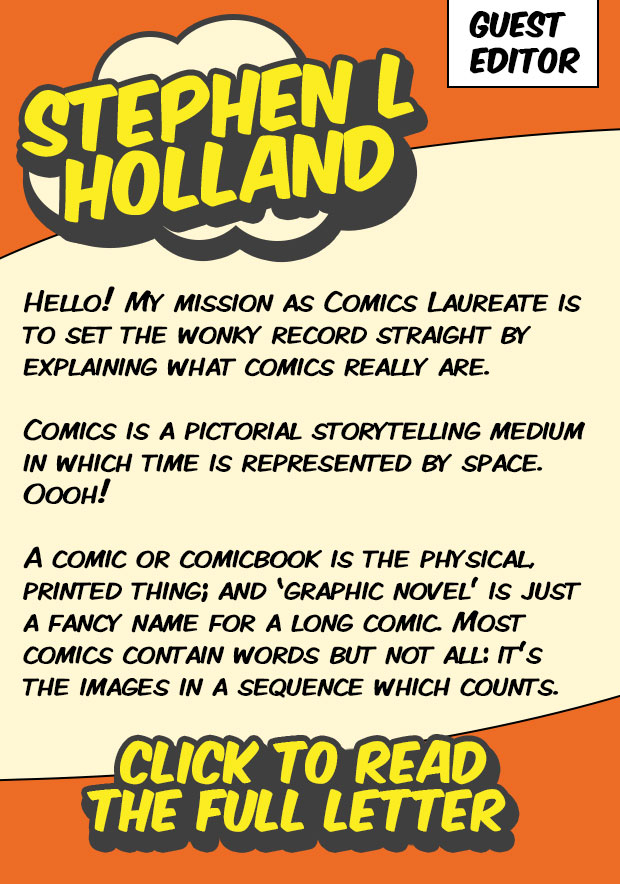
What makes a really great graphic novel?
Humanity. Great works speak to us about our own lives or those of others, often showing us something new about them. It doesn’t matter if they’re non-fiction, apocalyptic sci-fi or a delightfully daft comedy aimed at kids: we all need to relate to it in order to laugh or to cry; in short, to feel empathy.
In the best graphic novels the images won’t merely illustrate but illuminate what’s being said, even when they are wordless. There are few graphic novels more eloquent than Shaun Tan’s The Arrival, even though there isn’t a single word in it! It’s the biggest book of empathy that I’ve ever read, as well as one of the most beautiful.
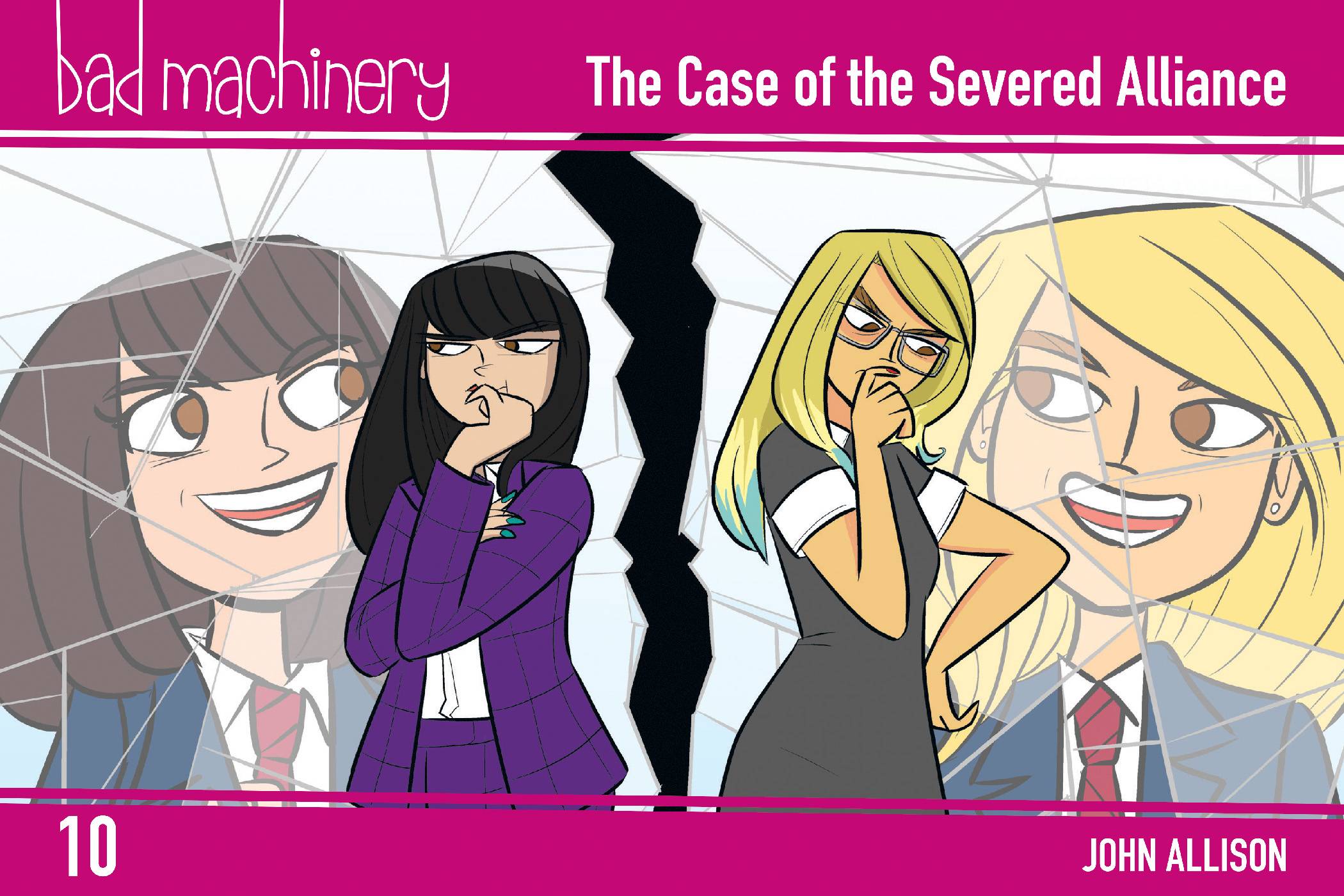 For kids new to graphic novels, do you have a recommended first read or place to start?
For kids new to graphic novels, do you have a recommended first read or place to start?
Bad Machinery by John Allison, for all ages! It’s deliciously witty and astutely observed, plus to my mind Allison is Britain’s most communicative cartoonist, bringing everyone and everything vividly alive! Its ten totally self-contained volumes star six friends with a passion for mystery who begin aged pre-teen then wind up as early teens... but Allison wisely decided to finish the series before anyone mentioned knickers. It’s bought by adults for adults (which is a testament to its craft) but is treasured in school libraries for readers younger than 10!
There's an assumption that graphic novels are mainly aimed at boys and reluctant readers. What do you feel about this?
Like most fun assumptions, it’s false – graphic novels are aimed predominantly at adults and cover everything from contemporary fiction, crime, comedy, fantasy, science-fiction to travel and award-winning autobiography / history – but it’s an understandable assumption if all you ever hear about are the American comics in which people in colourful costumes punch each other.
But as well as an entertainment medium in its own right, Young Adult and Young Readers comics are a terrific stepping stone for reluctant readers. When I was six or seven I was a painfully reluctant reader so my Mum introduced me to comics. My wide eyes sparkled at the spectacular images and – slowly or swiftly (I don’t recall which) – I was intrigued by their written words too. It worked: I now have a degree in English Literature and History of Art, so I am 100% proof of that pudding.
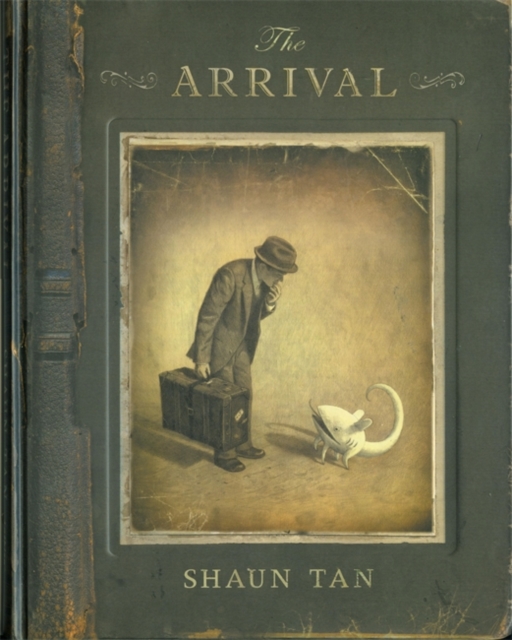 What is unique about graphic novels and what role do they play in encouraging reading for pleasure in children?
What is unique about graphic novels and what role do they play in encouraging reading for pleasure in children?
Pictures! Words! What’s not to love?! It’s double the pleasure! I could leave my answer right there!
More analytically, pictures are a universal language; they speak directly, excitedly and recognisably to our souls. I unequivocally adore the written word – it is an exceptional invention for nuanced communication – but it’s representational, at one remove from our instincts, whereas we see images every day, from our first day!
As to those who struggle with dyslexia, in comics there are far fewer words in each line – within the speech balloons or thought bubbles – than there are in prose books, so it’s a lot less overwhelming.
What does the role of Comic Laureate involve?
Teaching and preaching about comics. There’s so little information out there that we certainly have our work cut out!
From there each Comics Laureate chooses their own route dictated by their individual strengths. Mine is the breadth of my knowledge (I’ve written over 20,000 graphic novel reviews) and my unbridled joy in introducing new people to comics. I’ve spent over 25 years in my own shop hand-selling hundreds of thousands of graphic novels – very often to newcomers – by presenting anyone who asks with spoiler-free show-and-tell performances of graphic novels tailored to their specific tastes. Now I want to do that all over the country wherever I’m invited.
Do you have a manifesto for your term as Laureate?
I do! I want to make a direct difference to this country’s knowledge about comics by showcasing the true quality and diversity of graphic novels, as well as exploring how they work.
My fervent hope is that this will galvanise more people to begin reading and relishing graphic novels, and inspire yet more individuals – from the broadest possible backgrounds and with an even wider range of perspectives – to start creating them. We can never have enough new voices in comics!
Additionally, like the prose and picture book industries, the comics industry is disproportionately white and that’s wrong, so I’m getting straight into urban State Schools where I believe I can make the most difference.. I began at Abraham Moss in Manchester when half the students were fasting (so their sugar levels were all over the shop!) and they were phenomenal, every single one! I hope you can hear the great big grin in my voice!
Who is your favourite graphic novelist?
Can I answer that one with a question? (That wasn’t it.) What are your five favourite songs of all time? They differ, don’t they? Depending on what mood you’re in when you’re asked... My all-time favourite graphic novelist is the last one I read who made my jaw hit the floor with their craft.
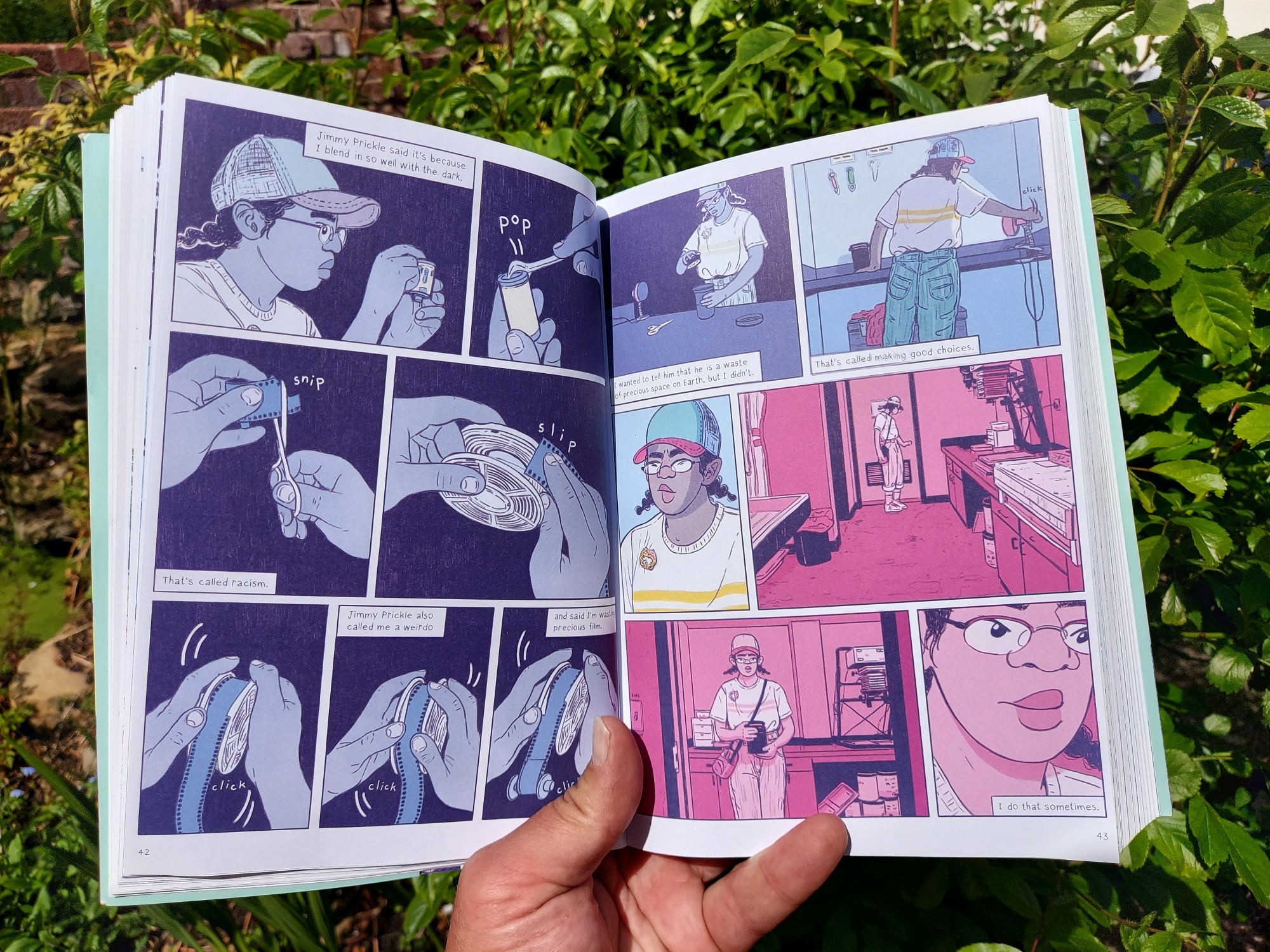 Can books compete with computer games?
Can books compete with computer games?
Oh yes! I love computer-games, but I still switch off my console to read prose books and graphic novels voraciously because they give me something which computer games can’t: the tranquillity and space within which to engage and let my own imaginative mind freely wander.
The human imagination is the most precious gift we all have. It has achieved so much, creating all the works of art in every medium which we so profoundly cherish. Thank you for the opportunity to present the medium of comics as a new one to fire up your avid readership’s minds!



Comments (21)
Sheri D - 29th July 2021
My son loved graphic novels, they are a brilliant step in reading longer books and are wonderful for their artworkLaura C - 26th July 2021
The thing I love about graphic novels is they offer a different way of reading to a traditional book so can help all children enjoy booksSusan B - 26th July 2021
I didn't know there was a Comic Laureate. What an interesting read. I started reading comics then moved onto graphic novels then onto serious reading. A perfect pathway!Deborah R - 21st July 2021
Words AND pictures! Pure escapism at it's best. So glad my granddaughter has inherited my love of graphic novels. She even draws/writes her own. Fantastic!melanie c - 21st July 2021
I really like the ones which have the speech in a readable font, and not all capitals - these ones are excellent for some struggling readers.Margaret G - 16th July 2021
Sending my mind into a dream world - escapism at its bestClaire L - 16th July 2021
I think graphic novels are really interesting, as there are so many details in the pictures. They tell a story sometimes without need of the words themselves. The Raymond Briggs ones are fabulous at this.Mary L - 16th July 2021
Graphic Novels are useful reading material for reluctant readers or ones who struggle to readChristina W - 10th July 2021
I like graphic novels as with my adhd I find it difficult to concentrate on words sometimes and the pictures break the book up for meSusie W - 8th July 2021
I like that graphic novels are good for those who don't want to read, and they don't realise they are!lynda s - 8th July 2021
Graphic novels use pictures and the action is non predictable. Able to guess what may happen. Fun to read !!!!!!!!!Nur S - 8th July 2021
Graphic Novels are just fantastic for young readers. We have read variety of GN this year and it has helped children to appreciated different style of reading and provided access point for those who find chapter books challenging.Janice N - 8th July 2021
Graphics Novels can grab your attention at any age and any reading ability. As a child my dyslexia put me off reading thick books Orr long novels but if I could follow the pictures I could understand the gist of the story even if I couldn’t make out every word.Jacqui G - 7th July 2021
I love that libraries carry a big selection of graphic novels nowadays. If you have children/g’children who are reluctant readers, why not try them on a graphic?Joanne F - 7th July 2021
Graphic novels are great because they are always action packed!Julie J - 7th July 2021
Lots of children like them as they are very colourful with few words and they see them as more approachable.MARIA R - 4th July 2021
Love graphic novels as they are a double sensory experiencekathleen m - 3rd July 2021
These are what we used to call comics in my day. I lived for spending money on Fridays to buy my comic and I’d read it over and over againPeter W - 1st July 2021
I got used to reading graphic novels by reading comics as a child.Kate I - 30th June 2021
I absolutely love graphic novel and have yet to meet a child who doesn't also love them. They are so accessible and visually appealing. They are great for a quick read but pack so much punch in such little time. I work in a library and recommend them all the time and regularly give them as gifts.Gill W - 30th June 2021
Graphic Novels are great for reluctant readers as they add the extra support some kids need to get them through a text.Leave A Reply
You must be logged in to post a comment.